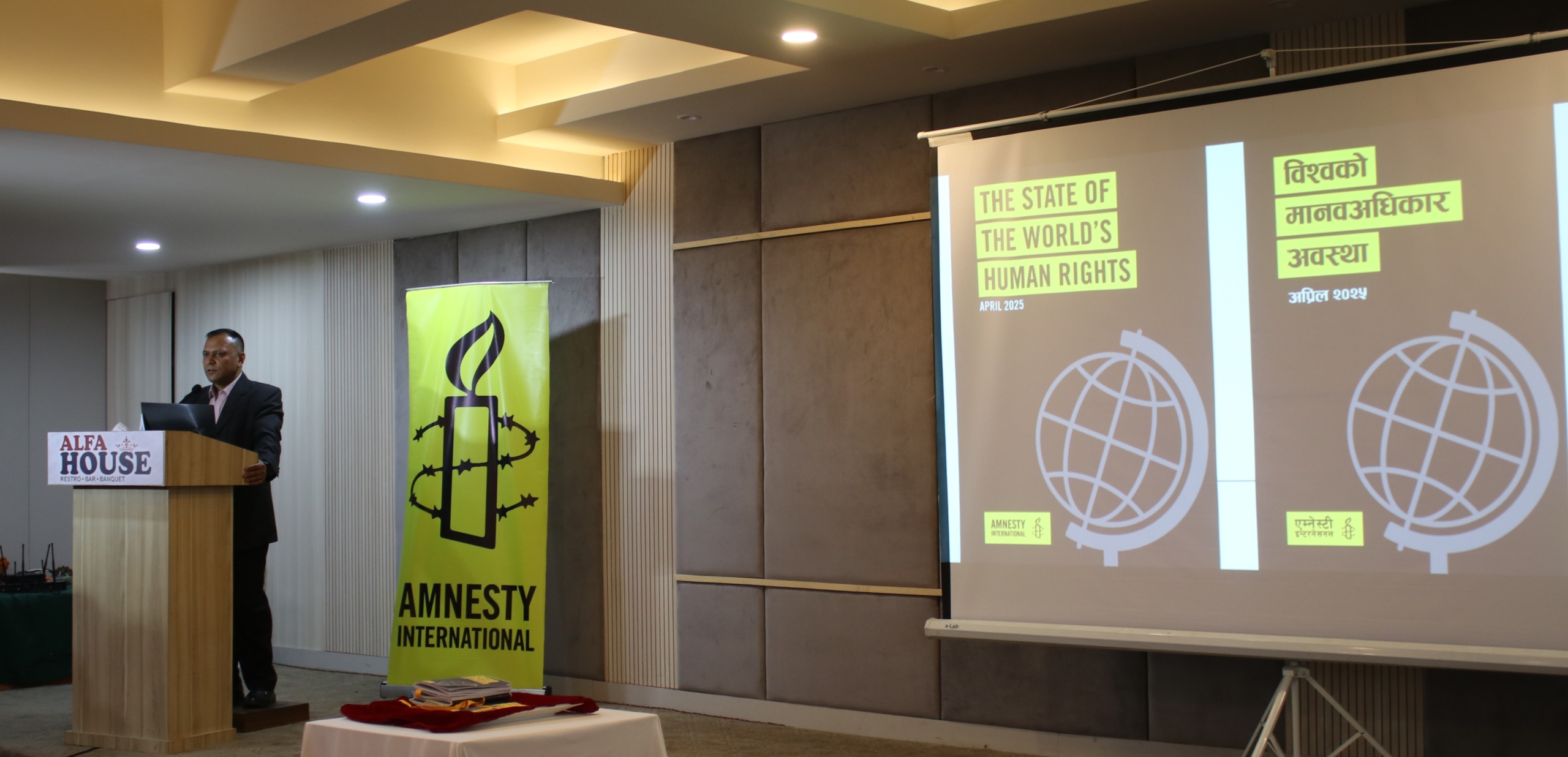On April 29, Amnesty International Nepal launched Amnesty International’s annual flagship global publication The State of the World’s Human Rights 2024 at a public event in Kathmandu. Released at a critical moment in global history—amid rising authoritarianism, deepening inequality, and increasing repression—the report offers a sweeping assessment of the state of human rights across 150 countries and territories. It documents not only alarming patterns of abuse and inequality but also the remarkable resistance of people standing up for their rights.
The launch event began with welcome remarks from Amnesty International Nepal’s Director Nirajan Thapaliya. “Since 1962, Amnesty International has been publishing this annual report, analysing global human rights trends and developments from January to December. Our intention has always been to examine the overall state and direction of human rights as well as the trends and patterns of abuse and violations worldwide. In 2024, while we witnessed some historic progress in human rights, we have identified five major global trends that are cause for serious concern,” he said.
In 2024, while we witnessed some historic progress
Amnesty International Nepal’s Director Nirajan Thapaliya
in human rights, we have identified five major global trends that are cause for serious concern
The launch event was attended by journalists, human rights defenders, civil society leaders, and representatives from diplomatic missions and government institutions.
A key moment in the event was the joint unveiling of the report by Bipin Budhathoki, Chairperson of Amnesty International Nepal, and Sarita Lamichhane, Founder of Prayatna Nepal, a non-profit, women-led organisation that empowers women and girls with disabilities.
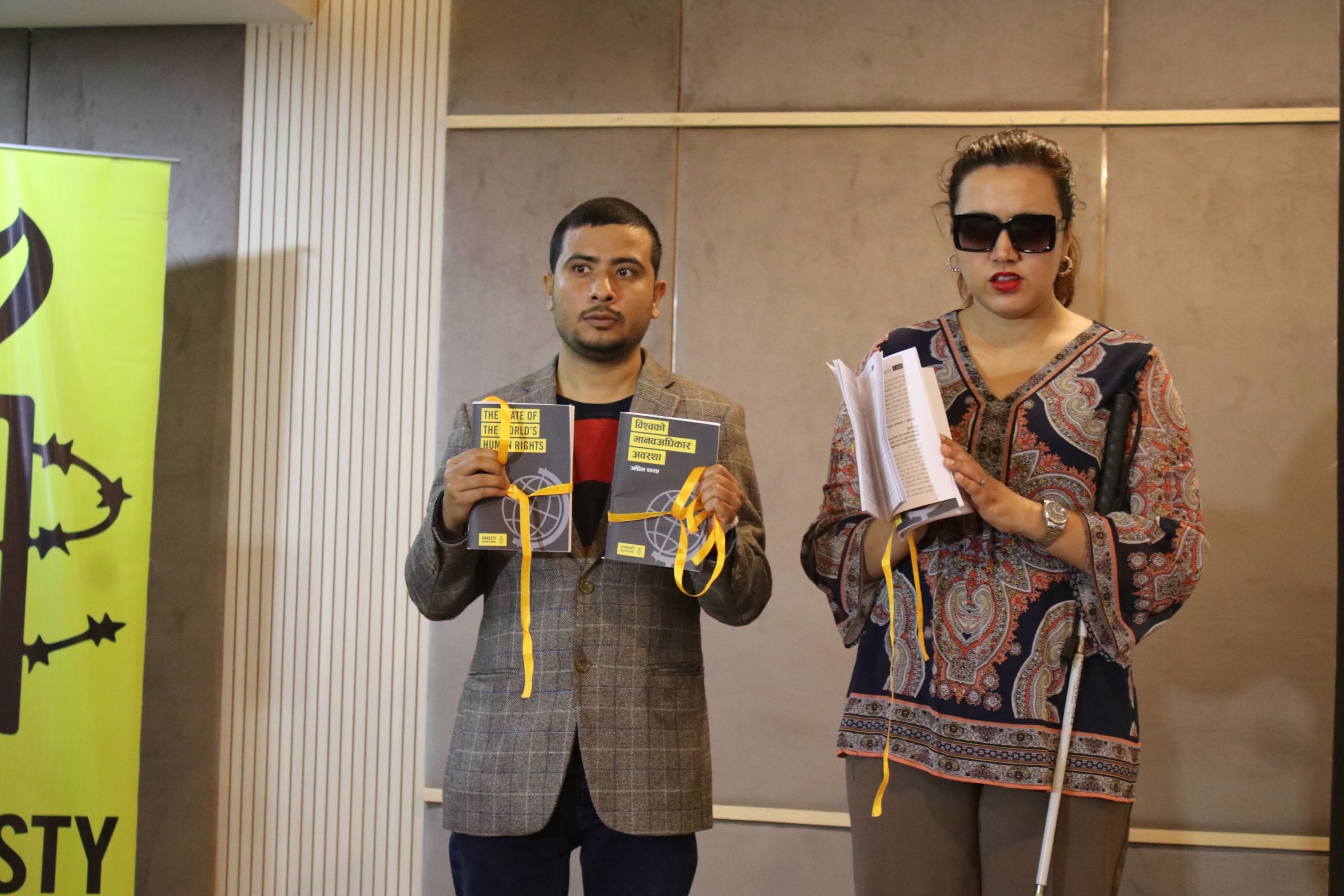
Amnesty Nepal’s Director Nirajan Thapaliya presented the key findings of the report. He contextualised global trends and drew attention to what Amnesty has termed the “Trump effect,” explaining how the Trump administration’s anti-rights stance helped accelerate authoritarian practices globally and undermine hard-won human rights protections. He also emphasised governments’ widespread failure to address intersecting crises—including deepening inequality, the escalating climate emergency, and the unchecked human rights impacts of technological transformations.
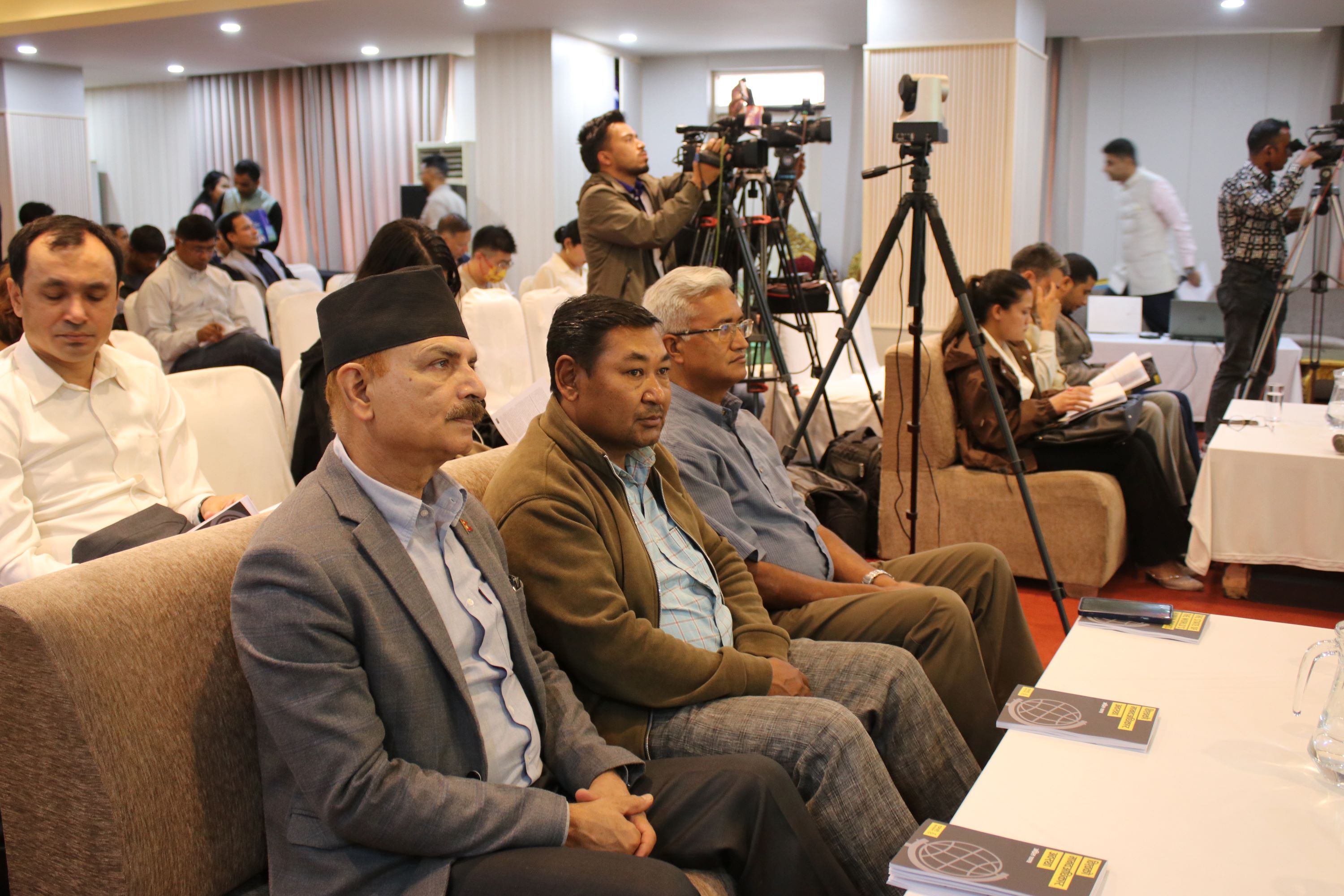
The presentation then moved to the Nepal section of the report, raising several urgent concerns. These include the unlawful use of force against protesters, increasing restrictions on freedom of expression and peaceful assembly, and a transitional justice process that remains slow and flawed—threatening to entrench long-term impunity. The report also highlights persistent gender-based violence, caste-based discrimination, forced evictions, and the illegal recruitment and exploitation of Nepali migrant workers. Together, these issues point to a troubling picture of systemic injustice and neglect.
Yet, amidst these daunting global trends, Thapaliya highlighted the power of resistance. From bold grassroots movements to sustained demands for justice and accountability, the report captures how ordinary people—both in Nepal and around the world—continue to push back against injustice.
A discussion followed the presentation, during which participants raised questions about government accountability and the structural barriers victims still face in seeking justice in Nepal. The questions pertained to caste-based discrimination, women migrant workers’ rights, LQBT+ rights, among others. The conversation reflected a deep concern for both national and international human rights challenges.
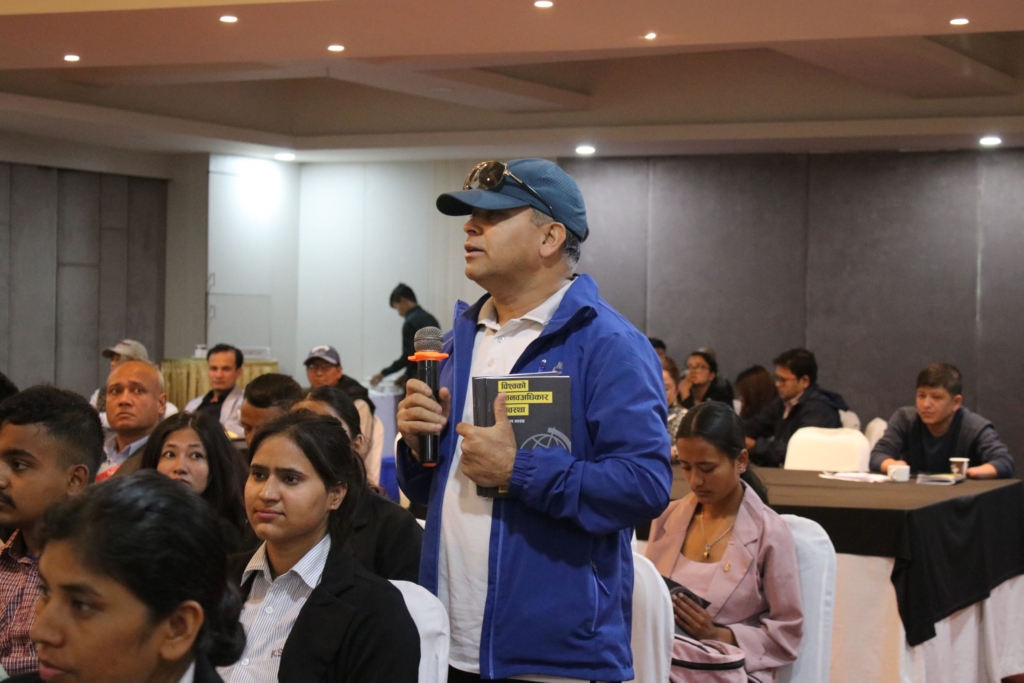
The event concluded with closing remarks from Bipin Budhathoki, who reaffirmed Amnesty Nepal’s unwavering commitment to truth, justice, and reparation. He urged government agencies, international partners, and civil society to remain vigilant and united in defending human rights and upholding the rule of law.
“As we step into 2025 and reflect on the human rights trends of 2024, it’s clear that civic space is shrinking, repression is rising, and inequality and discrimination are deepening. The climate crisis remains a human rights crisis, made worse by digital repression and unregulated technological advances. The State of the World’s Human Rights presents stark evidence that we are condemning future generations to an increasingly harsh existence due to our collective failure to address the climate emergency, curb inequality, and hold corporate power to account,” he said.
The State of the World’s Human Rights presents
Amnesty International Nepal's Chairperson Bipin Budhathoki
stark evidence that we are condemning future generations to an increasingly harsh existence due to our collective
failure to address the climate emergency, curb inequality,
and hold corporate power to account
The State of the World’s Human Rights 2024 paints a sobering picture. It reveals intensifying crackdowns on dissent, rising armed conflicts, weak responses to climate collapse, the continued genocide of Palestinians in Gaza, and a disturbing backlash against the rights of migrants, refugees, women, girls, and LGBTI people. Without urgent and collective action, these threats are only likely to grow in 2025.
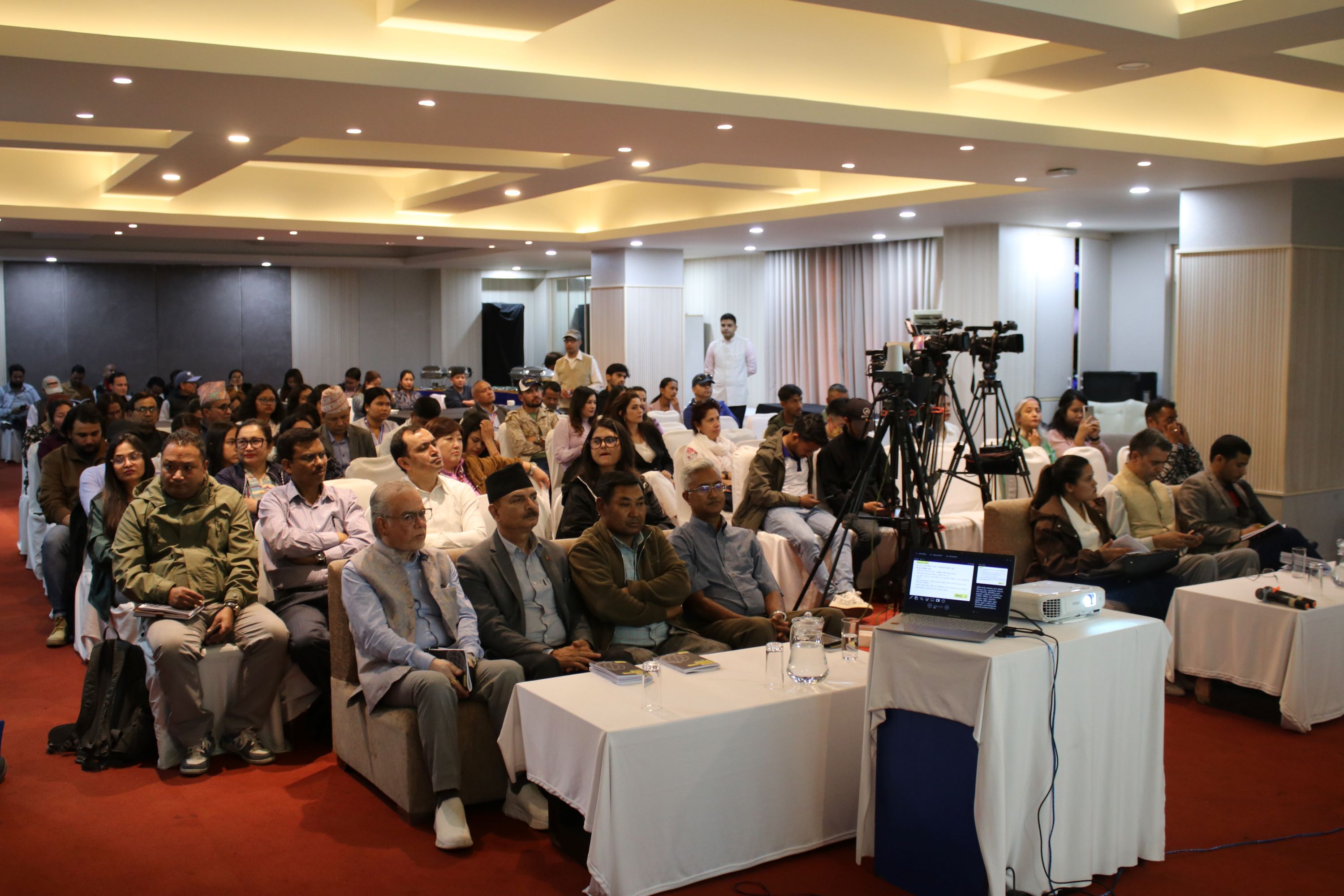
In this context, the launch became a timely platform for reflection, dialogue, and a commitment to action. At a time when international law is being disregarded and multilateral institutions are under strain, this report stands as both a warning and a call to mobilise.


